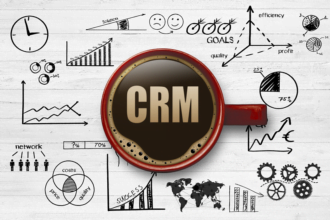Even in a recession, analytics can (and should) do well. I am often asked how the economy has affected me, and my quick answer is that “it doesn’t affect me,” mostly because I am a small, sole proprietorship. In general, though, bad economic times can be good for consultants as corporations shed employees and look for a way to perform their analytics tasks efficiently without having to take on longer-term commitments.
The way it is put in a recent Business Week article is this (they describe Business Intelligence software rather than data mining software, but the principles are certainly similar):
Interest in business intelligence software is on the rise, analysts say, as economic woes force companies to pursue profit by delving deeper into the information already at their fingertips. “There’s a tremendous pressure on cost containment, on developing accurate forecasts of sales and expenses and trying to align the expense stream with projected revenue stream,” says John Van Decker, research vice-president at research firm Gartner (IT).
And where software is purchased, there is usually many times more the cost of the software in training and consulting to help understand better how t…
Even in a recession, analytics can (and should) do well. I am often asked how the economy has affected me, and my quick answer is that “it doesn’t affect me,” mostly because I am a small, sole proprietorship. In general, though, bad economic times can be good for consultants as corporations shed employees and look for a way to perform their analytics tasks efficiently without having to take on longer-term commitments.
The way it is put in a recent Business Week article is this (they describe Business Intelligence software rather than data mining software, but the principles are certainly similar):
Interest in business intelligence software is on the rise, analysts say, as economic woes force companies to pursue profit by delving deeper into the information already at their fingertips. “There’s a tremendous pressure on cost containment, on developing accurate forecasts of sales and expenses and trying to align the expense stream with projected revenue stream,” says John Van Decker, research vice-president at research firm Gartner (IT).
And where software is purchased, there is usually many times more the cost of the software in training and consulting to help understand better how to use the software,
Add in other essential services, and a company can expect to spend more on BI than for other types of software, Evelson says. “For every dollar you spend on business intelligence software, you better expect to spend five to seven times as much on services,” such as ensuring it jells with the rest of the company’s software, he says.
But even with software, unless there is clear thinking about the problems that need to be solved, and which ones can be solved realistically (or impacted) with analytics, the software will just sit, doing nothing useful. This is surely a factor in the divide between potential capabilities in analytics (i.e., software on the shelf) and benefits attained by analytics:
Still, about two-thirds of large U.S. companies believe they need to improve their analytical capabilities and only half believe they are spending enough on business analytics, according to an Accenture (ACN) survey of 250 executives that was released in December. In it, about 57% of companies said they don’t have a beneficial, consistently updated, companywide analytical capability, and 72% are working to increase their company’s use of business analytics. Today, only 60% of major decisions are based on analytics, according to the survey, while 40% are based on intuition.

The better consultants work themselves out of jobs, rather than perpetuating the problems. (check out despair.com for tons of hilarious posters).
Just more information that these are good times for data mining.






